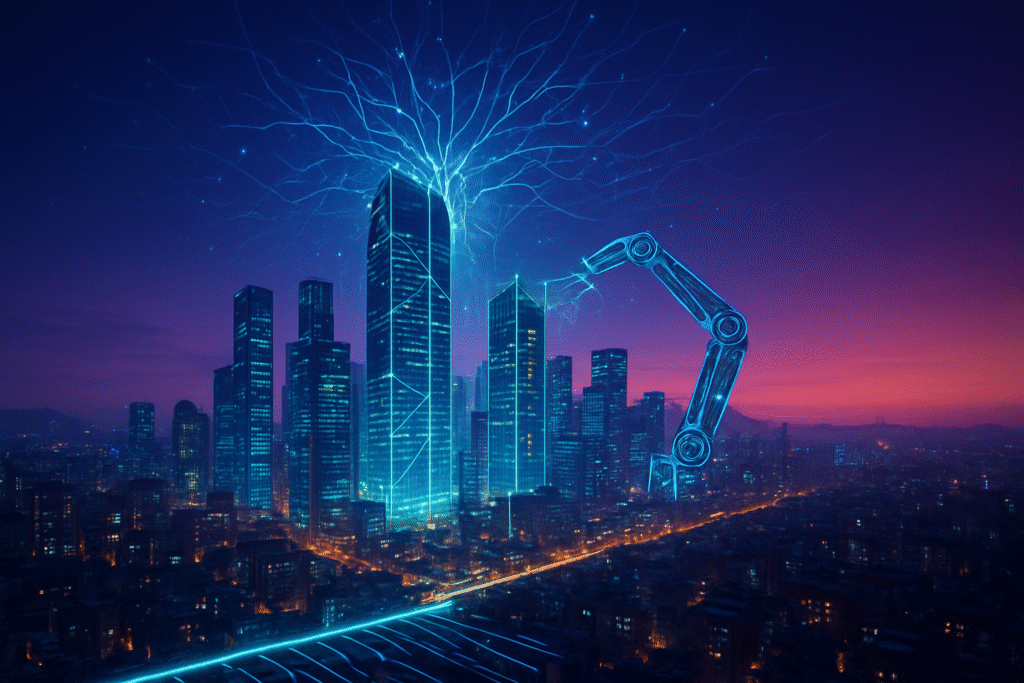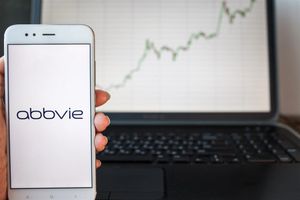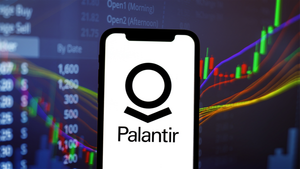
South Korea is rapidly emerging as a formidable force in the global artificial intelligence (AI) landscape, driven by aggressive government initiatives and substantial private sector investments aimed at fostering innovation and attracting international capital. The nation's ambition to become a top-tier AI powerhouse by 2027 is evident in its robust corporate contributions, advanced AI semiconductor development, and comprehensive national strategies. However, this rapid technological acceleration casts a long shadow, raising significant concerns about a widening digital divide that threatens to leave vulnerable populations and smaller enterprises behind, creating an "AI divide" that could exacerbate existing socio-economic inequalities.
The immediate significance of South Korea's dual focus is profound. On one hand, its strategic investments and policy frameworks are propelling it towards technological sovereignty and an accelerated industry transformation, promising economic revival and enhanced national competitiveness. On the other, the growing disparities in AI literacy, access to advanced tools, and job displacement risks highlight a critical challenge: ensuring the benefits of the AI revolution are shared equitably across all segments of society.
Forging Ahead: South Korea's Technical Prowess in AI
South Korea's technical advancements in AI are both broad and deep, touching various sectors from manufacturing to healthcare. Major conglomerates are spearheading much of this innovation. Samsung (KRX: 005930) is heavily invested in AI chips, machine learning algorithms, and smart home technologies through its "AI for All" initiative, while Hyundai Motor Group (KRX: 005380) is integrating AI into vehicles, robotics, and advanced air mobility systems, including a significant investment in Canadian AI semiconductor firm Tenstorrent. LG Group (KRX: 003550) has launched its advanced generative AI model, Exaone 2.0, and the AI home robot Q9, showcasing a commitment to cutting-edge applications.
The nation is also a global leader in AI semiconductor production. Samsung is constructing an "AI factory" equipped with over 50,000 GPUs, aiming to accelerate its AI, semiconductor, and digital transformation roadmap. Similarly, SK Group (KRX: 034730) is designing an "AI factory" with over 50,000 NVIDIA GPUs to advance semiconductor R&D and cloud infrastructure. Startups like Rebellions in Pangyo are also pushing boundaries in energy-efficient chip manufacturing. These efforts differentiate South Korea by focusing on a full-stack AI ecosystem, from foundational hardware to advanced applications, rather than just software or specific algorithms. The initial reactions from the AI research community and industry experts have been largely positive, recognizing South Korea's strategic foresight and significant capital allocation as key drivers for its ambitious AI goals.
Beyond hardware, South Korea is seeing rapid growth in generative AI and large language models (LLMs). Both corporations and startups are developing and launching various generative AI services, with the government identifying hyper-scale AI as a key area for foundational investment. This comprehensive approach, encompassing both the underlying infrastructure and the application layer, positions South Korea uniquely compared to countries that might specialize in one area over another. The government's plan to increase GPU performance by 15 times by 2030, aiming for over two exaflops of capacity through national AI computing centers, underscores this commitment to robust AI infrastructure.
The "Act on the Development of Artificial Intelligence and Establishment of Trust" (AI Basic Act), enacted in January 2025 and effective January 2026, provides a legal framework designed to be flexible and innovation-driven, unlike the more restrictive EU AI Act. This forward-thinking regulatory approach, which mandates a national AI control tower and an AI safety institute, assigns transparency and safety responsibilities to businesses deploying "high-impact" and generative AI, aims to foster innovation while ensuring ethical standards and public trust. This balance is crucial for attracting both domestic and international AI development.
Corporate Beneficiaries and Competitive Implications
South Korea's aggressive push into AI presents immense opportunities for both domestic and international companies. Major conglomerates like Samsung, Hyundai Motor Group, LG Group, and SK Group stand to benefit significantly, leveraging their existing industrial might and financial resources to integrate AI across their diverse business portfolios. Their investments in AI chips, robotics, smart cities, and generative AI platforms will solidify their market leadership and create new revenue streams. Telecommunications giant KT (KRX: 030200), for example, is accelerating its AI transformation by deploying Microsoft 365 Copilot company-wide and collaborating with Microsoft (NASDAQ: MSFT) to develop AI-powered systems.
The competitive implications for major AI labs and tech companies globally are substantial. South Korea's investment in AI infrastructure, particularly its "AI factories" with tens of thousands of NVIDIA GPUs, signals a move towards "Sovereign AI," reducing dependence on foreign technologies and fostering national self-reliance. This could intensify competition in the global AI chip market, where companies like NVIDIA (NASDAQ: NVDA) are already key players, but also foster new partnerships. NVIDIA, for instance, is collaborating with the Korean government and industrial players in a $3 billion investment to advance the physical AI landscape in Korea.
Startups in South Korea's deep tech sector, especially in AI, are experiencing a boom, with venture investment reaching an all-time high of KRW 3.6 trillion in 2024. Companies like Rebellions are setting new standards in energy-efficient chip manufacturing, demonstrating the potential for disruptive innovation from smaller players. This vibrant startup ecosystem, supported by government-backed programs and a new "National Growth Fund" of over 100 trillion won, positions South Korea as an attractive hub for AI innovation, potentially drawing talent and capital away from established tech centers.
The strategic advantages gained by South Korean companies include enhanced productivity, the creation of new AI-powered products and services, and improved global competitiveness. For example, in the financial sector, companies like KakaoBank (KRX: 323410) and KEB Hana Bank (KRX: 086790) are leading the adoption of AI chatbots and virtual assistants, disrupting traditional banking models. This widespread integration of AI across industries could set new benchmarks for efficiency and customer experience, forcing competitors worldwide to adapt or risk falling behind.
The Wider Significance: AI Leadership and the Digital Divide
South Korea's aggressive pursuit of AI leadership fits into the broader global trend of nations vying for technological supremacy. Its comprehensive strategy, encompassing infrastructure, talent development, and a flexible regulatory framework, positions it as a significant player alongside the US and China. The "National AI Strategy" and massive investment pledges of 65 trillion Won (approximately $49 billion) over the next four years underscore a national commitment to becoming a top-three global AI power by 2027. This ambition is comparable to previous national initiatives that propelled South Korea into a global leader in semiconductors and mobile technology.
However, the rapid acceleration of AI development brings with it significant societal concerns, particularly the potential for a widening digital divide. Unlike the traditional divide focused on internet access, the emerging "AI divide" encompasses disparities in the affordability and effective utilization of advanced AI tools and a growing gap in AI literacy. This can exacerbate existing inequalities, creating a chasm between those who can leverage AI for economic and social advancement and those who cannot. This concern is particularly poignant given South Korea's already high levels of digital penetration, making the qualitative aspects of the divide even more critical.
The socio-economic implications are profound. Older adults, low-income families, people with disabilities, and rural communities are identified as the most affected. A 2023 survey revealed that while 67.9% of South Korean teenagers had used generative AI, most scored low in understanding its operational principles and ethical issues, highlighting a critical AI literacy gap even among younger, digitally native populations. This lack of AI literacy can lead to job displacement for low-skilled workers and reduced social mobility, directly linking socioeconomic status to AI proficiency. Resistance to AI innovation from elite professional groups, such as lawyers and doctors, further complicates the landscape by potentially stifling broader innovation that could benefit marginalized communities.
Comparisons to previous AI milestones reveal a shift in focus. While earlier breakthroughs often centered on specific algorithmic advancements or narrow AI applications, the current phase, exemplified by South Korea's strategy, is about pervasive AI integration across all facets of society and economy. The challenge for South Korea, and indeed for all nations, is to manage this integration in a way that maximizes benefits while mitigating the risks of increased inequality and social fragmentation.
Glimpses into the Future: AI's Horizon and Lingering Challenges
In the near term, South Korea is expected to see continued rapid deployment of AI across its industries. The government's 2026 budget proposal, with a 19% year-over-year increase in R&D spending, signals further investment in AI-centered national innovation projects, including humanoid robots, autonomous vehicles, and AI-powered home appliances. The establishment of "AI factories" and national AI computing centers will dramatically expand the nation's AI processing capabilities, enabling more sophisticated research and development. Experts predict a surge in AI-driven services, particularly in smart cities like Songdo, which will leverage AI for optimized traffic management and energy efficiency.
Long-term developments will likely focus on solidifying South Korea's position as a leader in ethical AI governance. The AI Basic Act, taking effect in January 2026, will set a precedent for balancing innovation with safety and trust. This legislative framework, along with the planned establishment of a UN-affiliated international organization for digital ethics and AI governance, positions South Korea to play a leading role in shaping global AI norms. Potential applications on the horizon include highly personalized healthcare solutions, advanced educational platforms, and more efficient public services, all powered by sophisticated AI models.
However, significant challenges remain. The most pressing is effectively bridging the AI divide. Despite government efforts like expanding AI education and operating digital capability centers, the gap in AI literacy and access to advanced tools persists, particularly for older adults and low-income families. Experts predict that without sustained and targeted interventions, the AI divide could deepen, leading to greater social and economic inequality. The need for comprehensive retraining programs for workers whose jobs are threatened by automation is critical, as is ensuring equitable access to AI-supported digital textbooks in schools.
Another challenge is maintaining the pace of innovation while ensuring responsible development. The "Digital Bill of Rights" and the "Framework Act on Artificial Intelligence" are steps in the right direction, but their effective implementation will require continuous adaptation to the fast-evolving AI landscape. What experts predict will happen next is a continued dual focus: aggressive investment in cutting-edge AI technologies, coupled with a growing emphasis on inclusive policies and ethical guidelines to ensure that South Korea's AI revolution benefits all its citizens.
A Comprehensive Wrap-up: South Korea's AI Trajectory
South Korea stands at a pivotal juncture in the history of artificial intelligence. The nation's strategic vision, backed by massive public and private investment, is propelling it towards becoming a global AI powerhouse. Key takeaways include its leadership in AI semiconductor development, a robust ecosystem for generative AI and LLMs, and a forward-thinking regulatory framework with the AI Basic Act. These developments are poised to drive economic growth, foster technological sovereignty, and accelerate industry transformation.
However, the shadow of the digital divide looms large, threatening to undermine the inclusive potential of AI. The emerging "AI divide" poses a complex challenge, requiring more than just basic internet access; it demands AI literacy, affordable access to advanced tools, and proactive measures to prevent job displacement. South Korea's ability to navigate this challenge will be a crucial assessment of this development's significance in AI history. If successful, it could offer a model for other nations seeking to harness AI's benefits while ensuring social equity.
Final thoughts on the long-term impact suggest that South Korea's trajectory will be defined by its success in balancing innovation with inclusion. Its efforts to attract global investment, as evidenced by commitments from companies like Amazon Web Services (NASDAQ: AMZN) and NVIDIA, highlight its growing international appeal as an AI hub. The nation's proactive stance on AI governance, including hosting the AI Seoul Summit and launching the "APEC AI Initiative," further cements its role as a thought leader in the global AI discourse.
In the coming weeks and months, watch for further announcements regarding the implementation of the AI Basic Act, new government initiatives to bridge the digital divide, and continued corporate investments in hyper-scale AI infrastructure. The evolution of South Korea's AI landscape will not only shape its own future but also offer valuable lessons for the global community grappling with the transformative power of artificial intelligence.
This content is intended for informational purposes only and represents analysis of current AI developments.
TokenRing AI delivers enterprise-grade solutions for multi-agent AI workflow orchestration, AI-powered development tools, and seamless remote collaboration platforms.
For more information, visit https://www.tokenring.ai/.






